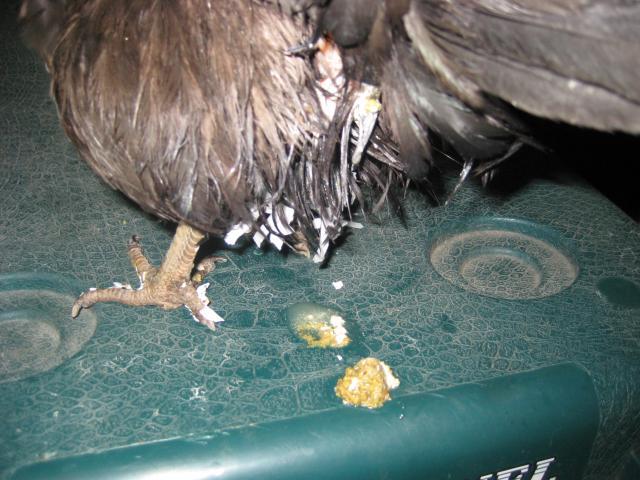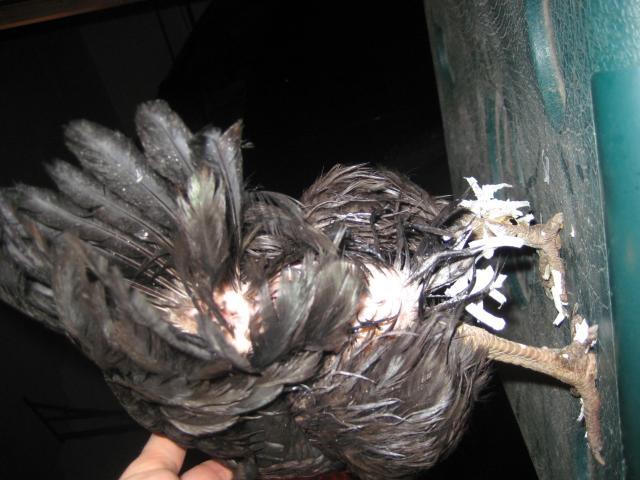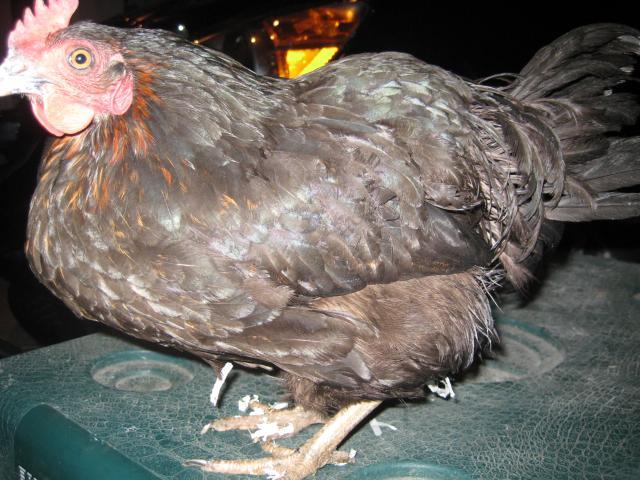- Feb 25, 2010
- 5
- 0
- 7
I have 6 hens. One (black sexlink) seems to have a problem but doesn't look or act sick. Her feathers from her tail down to under her legs are wet and stick together. She also has started to have a strong smell. Her poop looks normal, not bloody or runny, but there is clear liquid dripping down her rear end. She eats, drinks and walks around. Her face has no signs of illness (like crusts or drainage). She also seems to have less feathers on her rear, although, maybe that's due to the feathers sticking together.
I separated her from the others. Not sure yet, if she has stopped laying eggs.
Any idea what this could be and how I should try to treat her?
I have never had a sick chicken so far in the one year I have had them. So feel a bit clueless.
Thank you for any help.
I separated her from the others. Not sure yet, if she has stopped laying eggs.
Any idea what this could be and how I should try to treat her?
I have never had a sick chicken so far in the one year I have had them. So feel a bit clueless.
Thank you for any help.





